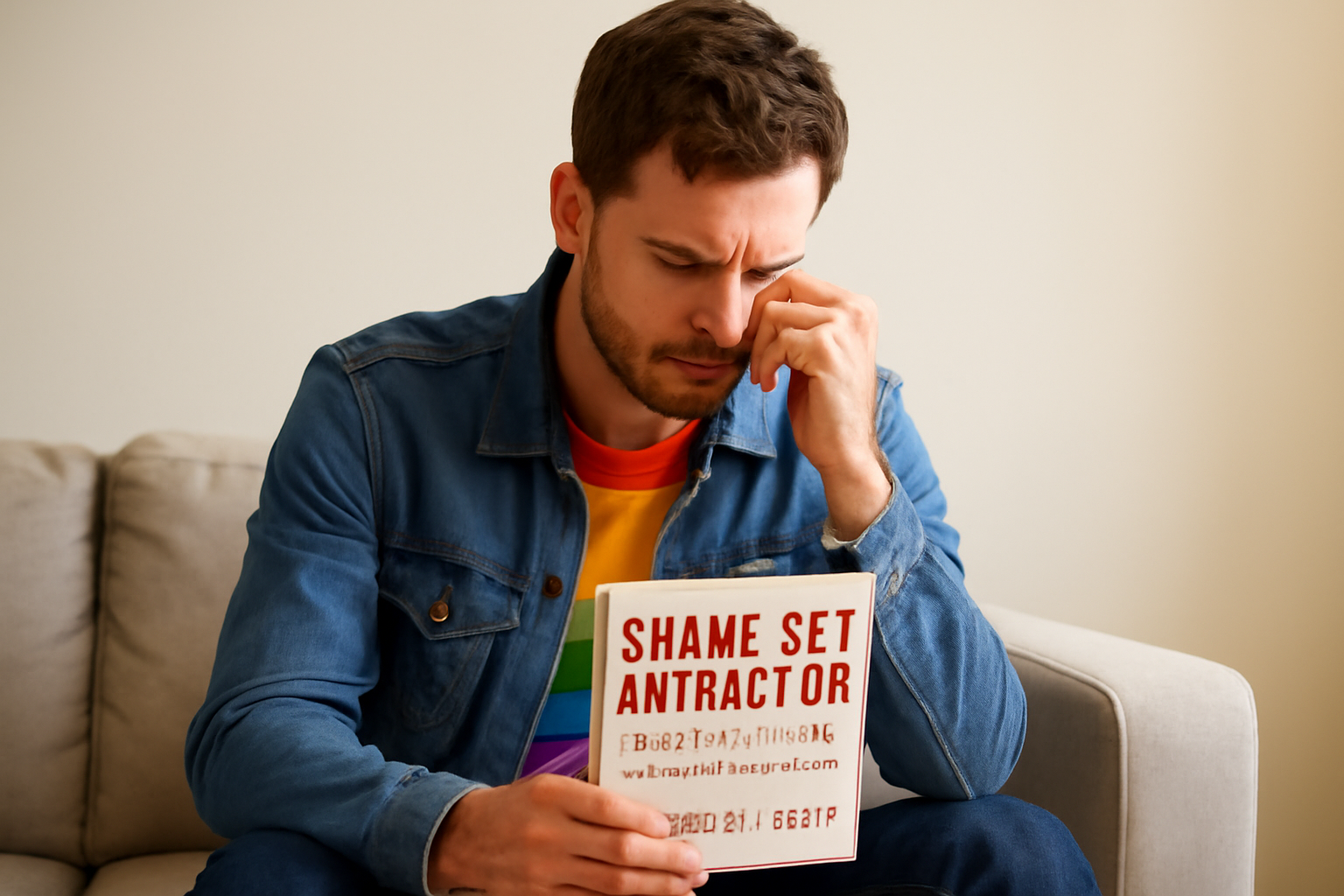
At the beginning of every year, many of us set resolutions with the hope of transformative change. However, as time passes, the struggle to maintain those resolutions becomes apparent. In the compelling new book "Shame-Sex Attraction: Survivors’ Stories of Conversion Therapy" by Lucas F. W. Wilson, we are reminded of how challenging and traumatic change can be, especially when imposed by others.
Despite some progress made in LGBTQ+ rights and acceptance, there remains a dark shadow in the form of conversion therapy — a practice that continues to affect countless lives. Wilson’s book sheds light on this insidious practice, revealing its harmful and often devastating effects through the voices of those who have survived it. Their stories are harrowing yet filled with resilience and strength, offering insight into both the horrors and the hope associated with these experiences.
The Ongoing Struggle Against Conversion Therapy
Conversion therapy is a practice that has been widely discredited and condemned by mental health professionals. However, as Wilson notes, it persists as a particularly stubborn issue within the broader fight for LGBTQ+ rights. The practice claims to "cure" individuals of their sexual orientation or gender identity, often resulting in severe psychological harm.
In "Shame-Sex Attraction," Wilson compiles stories that not only document the pain inflicted by such therapies but also the incredible courage and perseverance of survivors. These narratives highlight the multiple ways individuals have coped with and resisted these harmful practices.
One such story is that of Gregory Elsasser-Chavez, who endured a method designed to make him feel repulsed by his own thoughts. Rather than succumbing to the pressure of "praying away the gay," he humorously recalls an attempt to "sniff it away." His story is one of many that showcase the absurdity and cruelty of conversion therapy tactics.
Personal Journeys of Survival and Resistance
Another survivor, D. Apple, turned to acts of service as a means of self-conversion, tirelessly working to help others while trying to suppress their own identity. Meanwhile, Peter Nunn's narrative is a chilling reminder of the lengths to which some parents might go, as his father took him to a conversion facility under the guise of a surprise trip, threatening to disown him should the "therapy" fail.
Chaim Levin's story brings to light the humiliation faced during these sessions, while Lexie Bean shares the struggle of conveying their non-binary identity in a world that demanded they fit into a binary mold. Jordan Sullivan and Chris Csabs articulate the long-term emotional aftermath and the arduous journey toward self-acceptance following their experiences with conversion therapy.
Perhaps the most poignant reflection comes from Syre Klenke, who shares the collective heartbreak experienced during group conversion sessions. Klenke's words resonate with a deep empathy for fellow survivors, capturing the shared trauma and the haunting questions about the well-being of those who endured similar ordeals.
A Book of Resilience and Reflection
Wilson's book offers more than just documentation of pain; it serves as a testament to the resilience of the human spirit. It is a reminder that despite the attempts to erase or change them, these individuals have emerged as survivors. Their strength and stories provide hope and a call to action against the ongoing existence of conversion therapy.
For those considering reading "Shame-Sex Attraction," the structure of the book invites readers to dive into the personal stories before tackling Wilson's detailed and statistical introduction. His foreword, filled with footnotes and data, sets the stage for understanding the broader context of conversion therapy, but the heart of the book lies in the survivor stories, which are both heart-wrenching and inspiring.
While Wilson’s work is an essential read for anyone interested in LGBTQ+ rights and mental health, it is also a book that requires emotional preparedness. The narratives contained within are filled with triggers and intense emotions, but they ultimately underscore the power of survival and the ongoing fight for acceptance and equality.
In sharing these stories, "Shame-Sex Attraction" shines a light on the often hidden and painful realities of conversion therapy, while also celebrating the strength and resilience of those who have survived it. It is a call to all of us to advocate for change and to support the continued fight against practices that seek to harm rather than heal.
And as we reflect on these narratives, may we find inspiration in the courage and resilience displayed by these survivors, guiding us in our efforts to create a more inclusive and compassionate world.
Related Posts
Exciting New Images Released for '100 Nights of Hero': A Captivating Historical Fantasy
Unpacking '100 Nights Of Hero': A First Look If you're a fan who loves getting lost in historical fantasy, get ready because new images from *100 Nights Of Hero* have just dropped. This much-anticipated film stars Nicholas Galitzine, Emma Corrine, and Charli XCX, and brings Isabel Greenberg's beloved graphic novel storybook magic onto screens. Under Julia Jackman‘s masterful direction, *100 Ni [...]
Mary Trump Critiques Her Uncle's Use of Religion for Political Gain
Mary Trump, a clinical psychologist and openly lesbian, has been quite vocal about her criticisms regarding her uncle, former President Donald Trump. Recently, she took issue with how he uses religion as a means, in her view, simply as a tool, especially evident when discussing his decision on a military strike against Iran. In her blog, she expressed concerns that invoking God was less about fait [...]
The Enduring Journey from Darkness to Light: A Story of Resilience
One key part about taking charge in life? Defining yourself instead being shaped by someone else. It's all about living true and breaking away from those social norms dictating who "deserves" rights based on identity or fitting in with mainstream ideas. Often, society creates these isolating "closets" that keep people who dare defy these norms hidden and unsafe. History shows how religion's been [...]